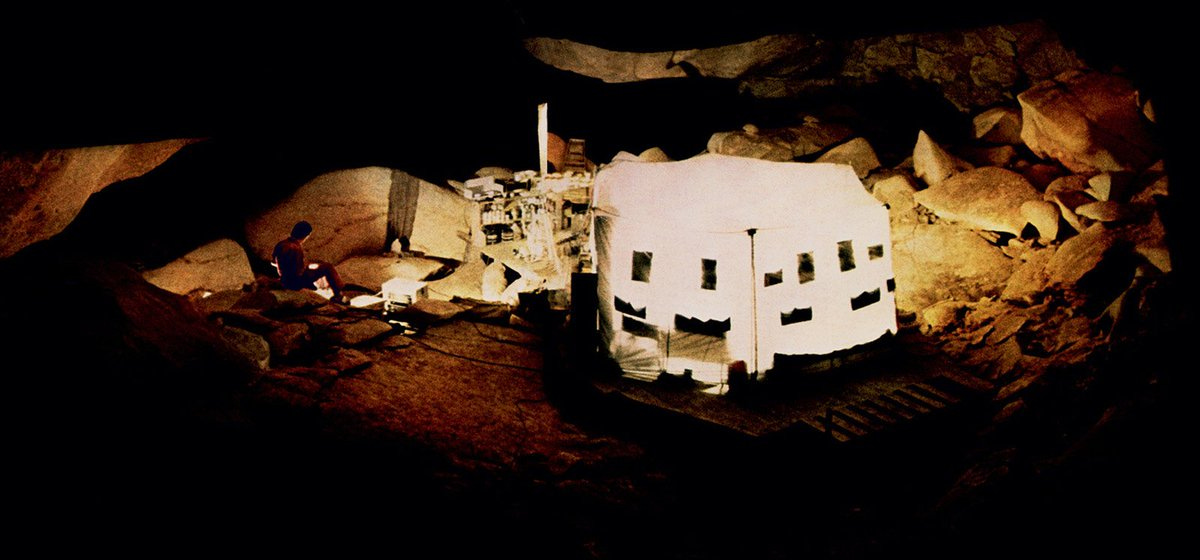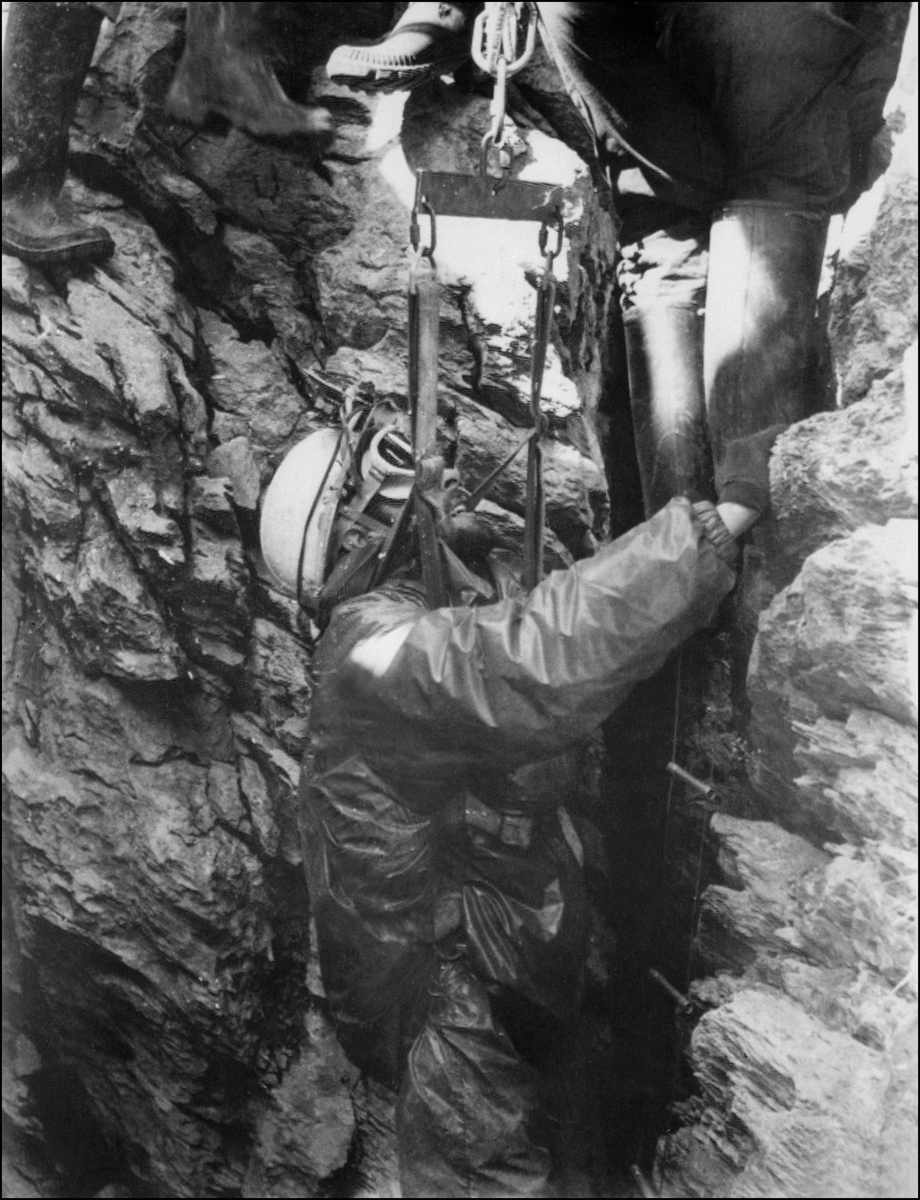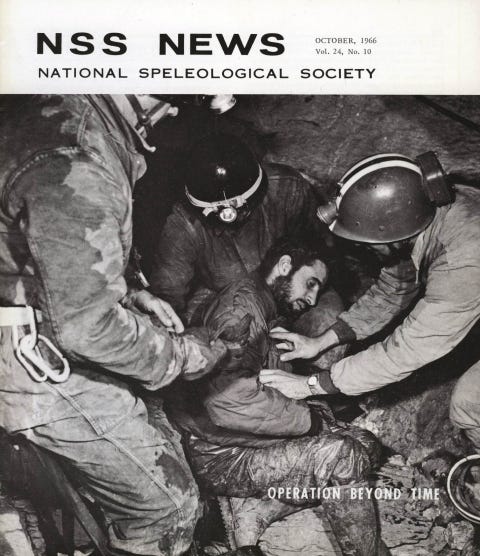The Man Who Lost Time: Michel Siffre's Groundbreaking Cave Experiments
In 1962, a young scientist descended into darkness to unlock the mysteries of how time functions in the human mind. What he discovered would shock the scientific community and forever change our under
Into the Abyss
Michel Siffre was just 23 years old when he made the extraordinary decision to turn himself into a human lab rat.
On July 16, 1962, the adventurous explorer descended into the Scarasson Cavern in the French Alps, not knowing how profoundly this experience would alter his life and scientific understanding.
His mission was deceptively simple yet fundamentally profound: to understand how time works inside the human mind when stripped of all external cues.
The underground laboratory he established was remarkable for its time—a primitive yet effective setup that included:
Wires monitoring his bodily functions
Video cameras tracking his movement
A phone line connecting him to his surface team
And most importantly, complete darkness
Every second of his experience was meticulously measured and recorded, but Siffre himself had no way of knowing what time it was. This was the critical element of the experiment—to remove all indications of time passing and observe how his body would respond.
The Physical Challenge
The conditions were brutal by any standard.
Siffre lived 375 feet (114 meters) underground in near-freezing temperatures that caused his body temperature to drop to a concerning 93°F (34°C).
Yet as challenging as these physical conditions were, they paled in comparison to the mental toll that would follow.
The Mind Creates Its Own Reality
What happens when you strip away all time cues from a human being? Siffre's experiment revealed something remarkable: your brain creates its own internal clock.
Without the sun, clocks, or any external indicators of time passing, Siffre's "days" naturally stretched to approximately 24.5 hours—slightly longer than Earth's 24-hour cycle.
But perhaps more fascinating was what happened to his perception of time: it was cut in half. What Siffre estimated to be about 2 minutes was actually closer to 5 minutes in reality.
Nature's Programming Exposed
The experiment uncovered something profound about human biology. We possess an internal clock that continues to function even without external cues. However, isolation severely warps this internal timekeeper:
Sleep cycles began to stretch beyond normal parameters
Time perception became increasingly distorted
Body temperature continued to drop
The natural programming of the human body was laid bare, vulnerable to observation
Scientific Gold Rush
When Siffre finally ascended from his subterranean isolation after 63 days, his findings captured widespread attention across various fields:
NASA immediately recognized the implications for future space missions
Military researchers studied the data for submarine crews who operate for extended periods without natural daylight
Scientists in the emerging field of chronobiology—the study of biological rhythms—eagerly analyzed his results
One man's willingness to endure isolation in a cave had sparked a scientific gold rush with far-reaching implications.
The Second Descent
The massive interest in Siffre's findings led to an even more extreme test.
With funding from highly interested parties, he undertook a second experiment that would be three times longer, with better equipment and even deeper isolation.
In 1972, Siffre went back underground—this time in Texas—for a grueling six-month experiment.
What he discovered was alarming: without external time cues, his body naturally adapted to 48-hour cycles, consisting of approximately 36 hours of wakefulness followed by 12 hours of sleep.
This revelation suggested that our modern 24-hour schedule might be more a product of our environment than our biology—evolution's default settings revealed in darkness.
The Psychological Toll
By the second month underground, Siffre's mind began to deteriorate. The isolation induced paranoia, with cave walls seeming to come alive around him.
He became convinced that fungus was growing everywhere and that the cave dust carried diseases. The emptiness of darkness transformed into a space filled with imagined threats.
His cognitive functions began to shut down systematically:
Speech became increasingly difficult
Thinking slowed dramatically
Even basic tasks felt impossibly complex
By the end of the experiment, Siffre could barely form coherent sentences. His experience demonstrated a crucial truth: the human mind requires connection to maintain proper function.
The Breaking Point
The extreme isolation nearly broke Siffre completely.
He later admitted to contemplating suicide during the darkest periods of his confinement. The only thread keeping him connected to his humanity was the brief calls with his surface team when he reported data.
His experience showed that sometimes the greatest scientific discoveries come at tremendous personal cost.
Revolutionary Impact
Despite the severe toll it took on him, Siffre's findings revolutionized multiple scientific fields:
They helped design effective sleep schedules for astronauts in space
They revealed fundamental mechanics behind human circadian rhythms
They demonstrated the profound effects of isolation on the human mind
What began as one man's solitary confinement resulted in major contributions to medicine, psychology, and human biology.
Lessons for Everyday Life
The crucial lesson from Siffre's experiments is surprisingly applicable to our daily lives: your body clock is more robust than you might think, but it requires anchors to function properly:
Maintain a consistent sleep schedule
Ensure regular exposure to natural sunlight
Engage in social interaction
The key is to work with your natural rhythm rather than fighting against it.
Redefining Time
Siffre's experiments force us to reconsider our understanding of time itself. It isn't simply numbers on a clock—it's deeply woven into the fabric of our biology.
By losing his connection to conventional time, Siffre helped humanity understand it more profoundly.
Sometimes you have to get lost to find the truth.
And for that, we owe Michel Siffre an enormous debt of gratitude.
If you enjoyed the read, two things you can do to share some love 🤝:













